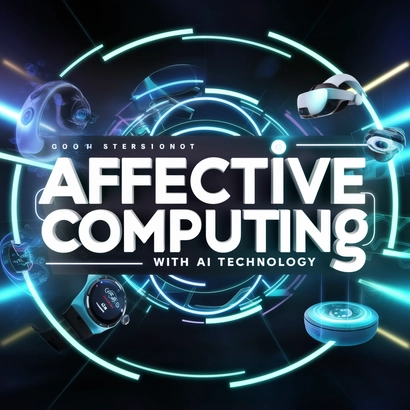Affective Computing
Affective computing refers to the study and development of systems that can recognize, interpret, process, and simulate human emotions. It aims to enable computers and other devices to understand and respond to the emotional states of their users, leading to more natural and intuitive interactions between humans and machines.
Areas of application
- 1. Healthcare – Affective computing can be used to develop systems that can recognize and respond to a patient’s emotional state, improving the overall care experience.
- 2. Education – Affective computing can be used to create personalized learning experiences tailored to a student’s emotional state, leading to improved engagement and academic performance.
- 3. Entertainment – Affective computing can be used to create more immersive and engaging gaming and entertainment experiences by recognizing and responding to a player’s emotional state.
- 4. Human-Computer Interaction – Affective computing can be used to develop more natural and intuitive interfaces that can recognize and respond to a user’s emotional state, leading to improved usability and user experience.
- 5. Psychology – Affective computing can be used to study and understand the emotional responses of individuals in various psychological states, such as anxiety or depression.
Example
A virtual assistant that can detect a user’s frustration and offer empathetic responses, such as ‘I understand you’re feeling frustrated. Let me help you with that.’
